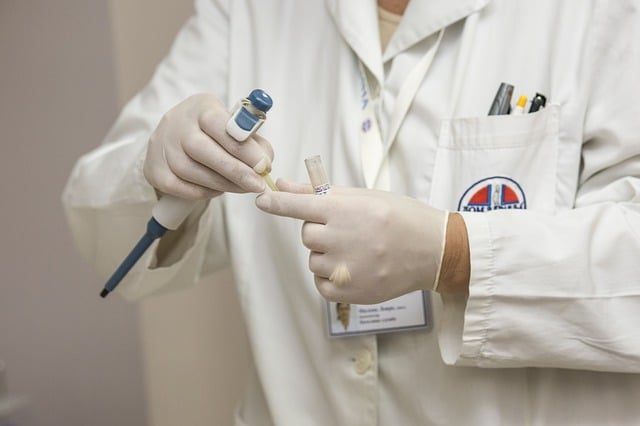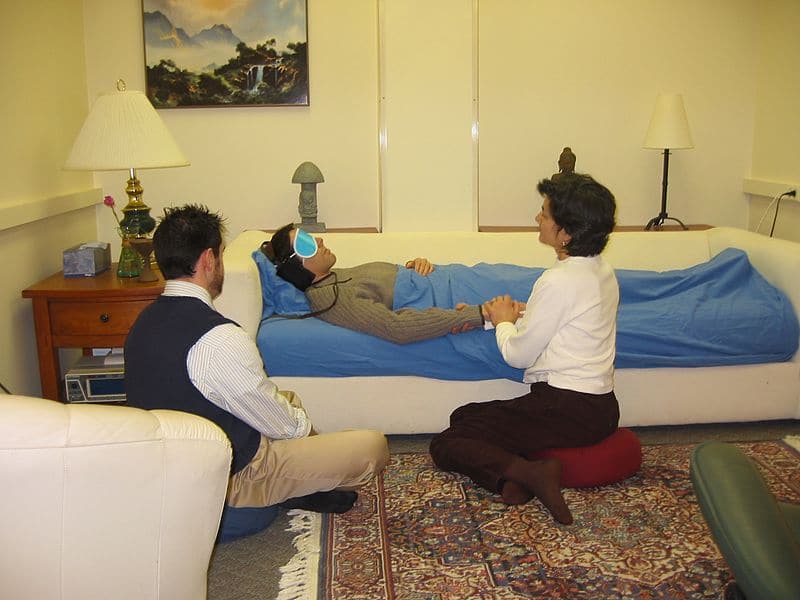Many psychonauts are interested in studying psychedelics in academia, but since there isn’t a well-defined path tread by multitudes of other students, deciding how to go about it can be quite a challenge. There are certainly success stories of people who have made a career for themselves out of working in the field of psychedelics, but they seem to be few and far between.
Fortunately, it does seem like academia is gradually warming up to the idea of psychedelia as a legitimate field of study. Since there aren’t a whole lot of tried-and-tested guides out there geared toward helping potential psychedelic scholars navigate collegiate careers, we have put together the following guide. If you want to carve out an academic path for yourself that aligns with psychedelics, may our guide point you in the right direction.
Examine Your Motives
First off, it is a good idea to think about why you are interested in choosing an academic path involving psychedelics. Is it because you think psychedelics are offbeat and out of this world? If so, you might find pursuing a rigorous set of graduate school courses on psychedelics to be disappointing or even boring. Are you interested in studying psychedelics because you benefited from a mystical or life-changing personal experience with a psychedelic? If that’s the case, then you don’t need to study psychedelics in college to continue your self-exploration—in fact, you may eventually decide that you can continue that exploration without the aid of psychedelics, instead choosing to employ techniques like yoga and meditation. If upon reflection, you realize that you don’t possess a strong desire to put in the time, effort, and money that it will take to earn a degree related to psychedelics, there are still other things you can do to spread knowledge about psychedelics to our wider society.
Choose a Field of Study
Assuming that you do decide to pursue a degree related to psychedelics, one important step in your intellectual pursuits will be the process of choosing which field you are going to study. Although the following list of topics easily lend themselves to psychedelic study, please realize that essentially any field, from art all the way to zoology, can be looked at through a psychedelic lens.
Pharmacology is the branch of biology that looks at the actions of psychoactive substances on the body. Specific fields within pharmacology examine how these substances affect various parts of the body. For example, psychopharmacology is an observation of how drugs can affect one’s mood, sensation, thinking, and behavior, whereas neuropharmacology focuses on how drugs affect cellular function in the nervous system. Someone who studies pharmacology could have a lot to offer the psychedelic community and the world at large.
Psychology is the scientific study of human behavior and the mind, including the subconscious and unconscious. Many people graduating with a degree in psychology go on to become therapists, and it may be helpful for students who wish to become therapists to contact the Association for Transpersonal Psychology to ask what specific programs and courses they recommend before embarking on a field of study. It is also worth noting that psychedelic therapy is not currently legal in many countries around the world (including the United States), so going into this field may mean that graduates end up offering their therapeutic services without the administration of psychedelics.
Chemistry is a scientific discipline that looks at the composition of various compounds, including their atomic and molecular structures. Chemists have firsthand knowledge of how to combine atoms and molecules to form new chemical compounds. Psychedelic researchers are often in need of high quality syntheses of psychedelic substances like LSD and DMT, and they rely on chemists to provide those samples for their research.
The Religious Studies field is devoted to researching religious beliefs, behaviors, and institutions throughout history. There is evidence showing that psychedelics have had a significant impact on various religions around the world, and a psychedelically-minded scholar could add their own observations to this field by choosing to study the implications that psychedelics have had (and are continuing to have) on religion.
Philosophy is the study of many foundational questions that have preoccupied mankind since time immemorial, including matters like existence, values, reason, mind, and language. It could be interesting to take a closer look at how psychedelics have affected philosophy over time as well as how they could have an impact on today’s worldview.
Ethnobotany is the scientific study of a region’s plants and how they are used by local cultures. While this field studies the ways plants have been used by primitive and contemporary tribal societies, someone with an interest in psychedelics might choose to look at how plants have been and continue to be used as medicines, and as methods for self-reflection and spiritual development. Ethnobotanical studies may also provide opportunities for students to travel to countries where psychedelics are legal to conduct their research.
For those who are interested in taking more control over their course selection, independent study may prove to be an excellent option. Before asking a professor to help direct your independent study, it would be helpful to have a specific idea of what you want to study, or what questions you want your work to answer. Coming up with a list of books and articles that you would like to study and writing an outline of your goals can show the professor that you are serious about your topic. Some universities may allow you to attend a conference on psychedelics as part of an independent study program, which will give you an opportunity to incorporate the speakers’ works and sessions into your syllabus. Bear in mind that your professor will not be able to give you any credit for doing something illegal, so it is most likely wise to keep your own psychedelic exploration to yourself.
Identify a Specific Niche
Academia usually requires students to become experts in a narrow field of inquiry. Because of this, it may be helpful to refrain from saying that you want to study a broad area of subjects relating to psychedelics. Rather, you could focus on a particular topic, like the implications of psilocybin and LSD for the treatment of cluster headaches or the use of ibogaine to treat opiate addiction. It can be difficult to work with too broad of an interest in an academic setting, but a focused inquiry is much more suited to legitimate investigation. Bear in mind that others may be more compelled to help you if you have a specific mission in mind.
Get Involved With Research
If you are planning to get involved with psychedelic research after earning your degree, it is very advantageous to get research experience as early as possible in your academic career. Even if you’re not planning to go into a research track, having research experience may still prove valuable to your field. As an undergraduate, you can start by volunteering or working as an intern on research projects in a university lab. Most of this type of work involves data management, lots of paperwork, and administrative tasks. You could even look for a temporary summer job with an ongoing psychedelic research study.
After you have earned your Bachelor’s degree, more options will be available for you at the graduate level. Once you’ve earned your Master’s or Ph.D. you can become a research scientist or postdoctoral fellow and assist in conducting studies, analyzing data, and writing about your findings. A final step in the research track would be to start your own line of psychedelic research as a principal investigator, which will require many years of schooling and hard work.
Educate Yourself
While you will definitely be doing a lot of your studying within the confines of your university’s program, there is no reason you shouldn’t also be educating yourself outside of school. (This also goes for people with no inclination to take the academic path!) Resources like Google Scholar and Google Alerts can be configured to automatically notify you when there are new publications on any given subject or keyword. In addition, you can use your spare time to read books, listen to podcasts, and watch documentaries about psychedelics.
You may even consider requesting that your local and school libraries and bookstores acquire books and other materials about psychedelics. Not only would it help spread knowledge about the topic, it also helps send the message to authors and publishers that their work is valued and important.
Make sure you are doing exemplary work as an undergraduate, and beyond. If there is any hope of attending graduate school to study psychedelics, it is imperative to keep your GPA up, to prepare for and perform strongly on the GREs, and to conduct your own self-guided study in the areas of psychedelics about which you are most passionate. Another way you can educate yourself is to attend any of the psychedelic conferences held around the world.
Evaluate Potential Schools
Figure out which field interests you and try to get into the best graduate program available for that field. Well-respected, top-rated programs and universities are often more likely to be more open-minded to psychedelic study because their reputations are already secured.
Prior to applying to graduate school, you should identify and read professional articles and books written by university professors. Reach out to them and ask if their universities would be open to studying psychedelics. If the conversation goes well and you are interested in applying to their university, it doesn’t hurt to ask for a letter of recommendation.
You could also reach out to the department heads at universities that interest you and ask about the possibility of studying how their field might apply to psychedelics, and vice versa. It can be helpful to ask if there is anyone on the faculty who might be interested in such a topic. If the people you speak with have a negative reaction, it will help you eliminate the universities that wouldn’t be a good fit for this type of work.
Join or Create a Psychedelic Organization
Thinking globally and acting locally can be extremely helpful in bringing the insights of psychedelic culture to a wider population. There may already be clubs or organizations at your school, but if there aren’t you may be able to create one of your own. One option would be to see if there are chapters of national organizations like NORML, the Marijuana Policy Project, or Students for Sensible Drug Policy already formed at your university. If you end up forming your own chapter, make sure that it is a recognized student organization and follow your university’s rules, which will ensure that you get permission to use campus facilities and may make you eligible for funding from the student government.
If your university is not willing to allow the formation of a university-approved organization, another option is to form an unofficial group that meets in bookstores or coffee shops to discuss ideas, and even possibly to create initiatives sparking actions to fit unique local needs. If nothing else, it can be helpful to create safe spaces for people experimenting with psychedelics to speak with one another and to facilitate integration of challenging psychedelic experiences.
Understand the Opposition
One final topic that many do not consider when thinking about studying psychedelics is the need to acknowledge and sympathize with the viewpoints of those who believe these substances to be exclusively harmful. This opinion is often due to fear caused by the prevalence of misinformation, even if it is also true that the use of psychedelics has on occasion led to harm and even death in some cases. It is important to not dismiss people altogether if they are not in full support of psychedelics.
Instead, you can attempt to engage in meaningful dialogue with those in opposition and keep an open mind to what they are saying. At this point in time, it is often practical to be as diplomatic as possible. Knowing your audience will help you frame your argument in language they can understand, preventing people from shutting down before having a chance to consider your perspective. Be the bridge.
Additional Resources from MAPS
The Multidisciplinary Association for Psychedelic Studies has some excellent information available to prospective students, including a list of academic programs and institutions which offer instruction about psychedelics, a list of active student organizations related to psychedelics, and a listserv that graduate students can join to stay up-to-date with the latest news about psychedelics in academia.
Conclusion
Although it can be challenging to know where to start when embarking on a psychedelic journey through academia, it is still quite possible to study psychedelics in college. The world stands to benefit from understanding psychedelics as having more legitimacy, and a lot of that work will be accomplished by students, scientists, and scholars conducting research in universities.
When it comes to studying psychedelics, there are many tasks involved: first doing some self-reflection to determine one’s true motives, then choosing a specific field of study, getting involved with psychedelic research as early as possible, and evaluating potential schools to attend. We at Psychedelic Times hope that our tips and resources prove useful for the current and future generations of academically-inclined psychonauts.




















